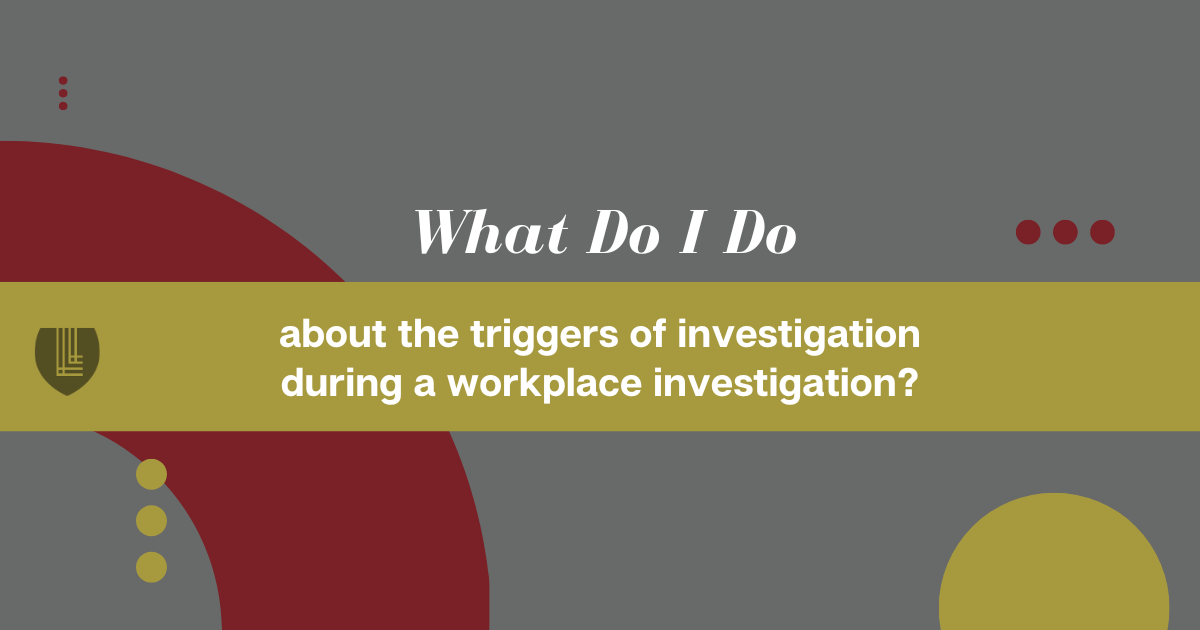Natalie Lynch is your credentialed investigator and licensed attorney, not a vlogger.
What do I do to explain the triggers of an investigation?
Even as a third party external investigator, it’s important that I be able to identify what should trigger an investigation. Not every client is completely sophisticated about title seven triggers and other employment-based triggers for investigation. Simultaneously, no client is excited about spending money on an investigation. So you better be able to sell your services just a little bit.
That being said, clients are often not thinking about triggers for investigations the way that we do, certainly – but definitely not the way a plaintiff’s attorney would. So one of the things that sticks out to me quite often, because it comes up so frequently, is that people will say things like, “Well I have this reporting party, but she’s crazy.” Or “We have this reporting party, but what she’s saying doesn’t even make sense.” Or “We had a reporting party, but she quit.”
And none of those things make the problem go away. So, one of the things that I learned in victim focus training, a few that I’ve taken, are that people who are victimized act crazy. And so it’s really hard to know if the person that’s reporting concerns is in fact crazy, or if they’re traumatized. And that is a natural expression of what’s going on in the workplace – and it needs to be investigated.
If the victim quit, you’re still on notice that you have a harasser or a bully or someone creating a toxic work environment in the workplace, even though that person left. Your complainer left, but you’re still on notice that you have a problem. And so you need to be somewhat familiar with the civil rights acts.
In Texas, the new law that says that everybody is required to investigate – even tiny employers – and when they’re required to do it. Even as an external third-party investigator, you need to know those triggers for your clients.
For more legal investigative advice, like and subscribe.
